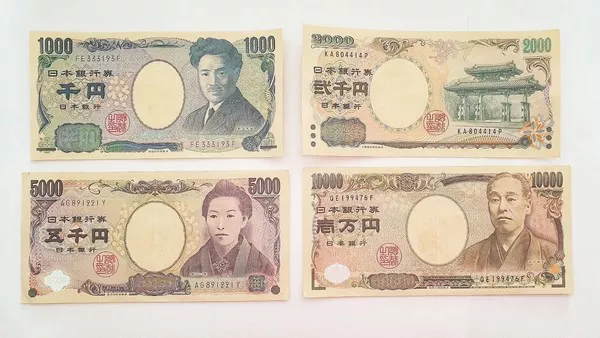The exchange rate of a country’s currency plays a crucial role in its economy. For Japan, a country known for its technological advancements, strong export-oriented industries, and unique economic challenges, the value of the yen against other major currencies holds significant implications. In recent years, the yen has experienced fluctuations, at times weakening against other currencies. This has sparked debates among economists, policymakers, and businesses about whether a weak yen is beneficial for Japan’s economy. In this article, we will delve into the complexities of this issue, examining the potential impacts of a weak yen on various aspects of Japan’s economy.
Historical Context:
To understand the current relevance of a weak yen, it is essential to explore Japan’s historical experiences with currency valuation. Japan has a long-standing reputation as an export-driven economy, with industries such as automotive, electronics, and machinery playing a central role in global trade. Over the years, Japan has grappled with the challenges posed by a strong yen, which can undermine the competitiveness of its exports in international markets. During periods of yen strength, Japanese exports become relatively more expensive for foreign buyers, impacting the profitability of Japanese businesses and potentially leading to adverse effects on the overall economy.
Conversely, a weaker yen can provide a boost to Japan’s export-oriented industries, making their products more affordable and competitive in global markets. In recent decades, the Japanese government and the Bank of Japan have employed various measures to influence the exchange rate, with the goal of supporting economic growth and stability. These measures have included interventions in the currency markets and monetary policy adjustments aimed at influencing the value of the yen.
Effects on Exports and Trade:
The impact of a weak yen on Japan’s economy is perhaps most evident in its effect on exports and trade. A weaker yen typically translates to lower prices for Japanese goods and services in foreign markets. This can lead to an increase in export volumes as foreign buyers find Japanese products more attractive and competitively priced. Moreover, the revenue generated from exports may also rise due to the favorable exchange rates, bolstering the profitability of Japanese exporting firms.
On the other hand, a weak yen may lead to higher import costs for Japan, especially for goods and raw materials sourced from overseas. This can pose challenges for businesses reliant on imported inputs, potentially affecting their cost structures and profit margins. Import-driven industries, such as energy and raw materials processing, could experience adverse effects from a weak yen, as their operational expenses increase.
Effects on Domestic Consumption and Inflation:
While a weak yen can benefit export-oriented industries, its impact on domestic consumption and inflation is nuanced. A weaker currency can make imported goods relatively more expensive for domestic consumers, potentially leading to inflationary pressures. However, for domestic manufacturers competing with imports, a weak yen can provide a competitive advantage by making their products more price-competitive compared to foreign alternatives. This could lead to increased domestic sales and production, benefiting certain sectors of the economy.
In terms of inflation, a weak yen may contribute to higher import prices for commodities such as oil, which could result in increased production costs across various industries. This, in turn, may lead to upward pressure on consumer prices, affecting the purchasing power of households. However, if the increased export competitiveness resulting from a weak yen leads to higher industrial output and employment, it could support domestic consumption and economic growth.
Investment and Financial Markets:
The implications of a weak yen extend to Japan’s investment landscape and financial markets. From an investment standpoint, a weaker currency may make Japanese assets more attractive to foreign investors, as the returns on investments denominated in yen are potentially magnified when converted back into a stronger currency. This influx of foreign investment could contribute to liquidity in Japan’s financial markets and stimulate investment in domestic businesses and infrastructure.
However, a weak yen also brings certain risks to the financial sector. Fluctuations in currency valuation can introduce volatility and uncertainty, impacting the returns on international investments and foreign exchange hedging strategies. Japanese businesses with significant foreign currency-denominated debt may face challenges in servicing their obligations if the yen remains weak over an extended period.
Government Policy and Long-Term Considerations:
As with any economic phenomenon, the impact of a weak yen on Japan’s economy is subject to a range of variables, including global economic conditions, trade dynamics, and geopolitical factors. The Japanese government and the Bank of Japan must carefully consider the ramifications of currency valuations on the economy and formulate policies that balance the interests of various stakeholders.
In the long term, structural considerations are crucial for Japan’s economic resilience. While a weak yen can offer short-term benefits to certain sectors, sustained reliance on exchange rate fluctuations for economic competitiveness may hinder efforts to address fundamental structural challenges, such as demographic shifts, technological innovation, and productivity enhancement.
See Also: 5 Curious Facts about the Japanese Yen
Conclusion:
The question of whether a weak yen is good for Japan’s economy is complex and multifaceted. While a weaker yen can bolster the competitiveness of Japan’s export-oriented industries and stimulate economic growth, it also presents challenges, such as potential inflationary pressures and increased import costs. The interplay of these factors underscores the need for a balanced and comprehensive approach to currency management and economic policy.
As Japan navigates the intricacies of currency valuation and its implications, policymakers, businesses, and economists must remain vigilant, considering the broader context of global economic developments and Japan’s long-term economic sustainability. By understanding the complexities of currency dynamics and their impacts, Japan can strive to achieve a balanced and resilient economic foundation, irrespective of fluctuations in the value of the yen.


